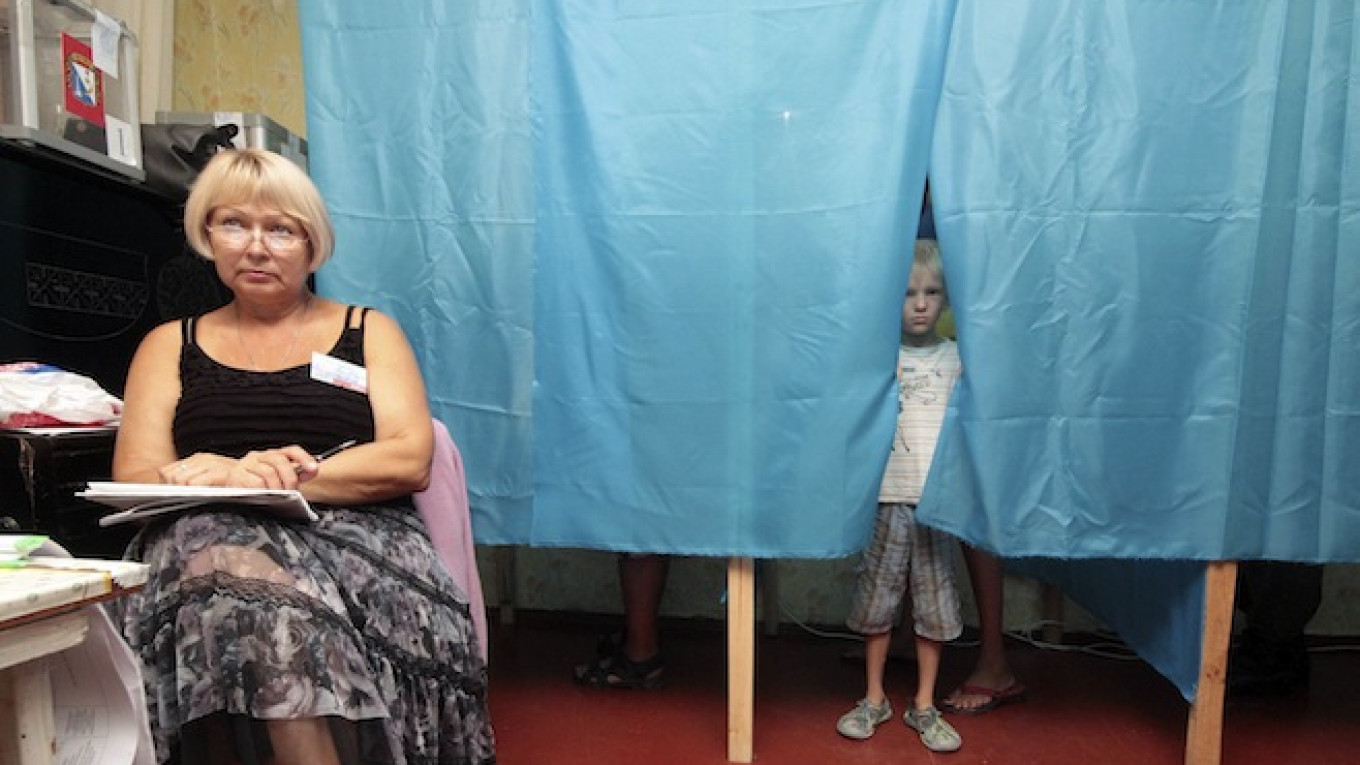Six months after Crimea voted to become part of Russia, elation could give way to discontent over problems such as power and water shortages, the government official responsible for the region said.
"Euphoria cannot be eternal," Crimean Affairs Minister Oleg Savelyev said in an interview at the Reuters Russia Investment Summit.
Moscow's annexation of Crimea from Ukraine in March, days after a referendum that backed joining Russia, stirred patriotic fervor on the Black Sea peninsula and across Russia, sending President Vladimir Putin's ratings soaring.
The Russian government has promised additional funds to help the region and is trying to build utility and transport lifelines with the peninsula before winter sets in. Ukraine and the West say the annexation is illegal and imposed sanctions on Moscow.
Savelyev acknowledged the Russian government faced a tough task, with problems exacerbated by the sanctions and by a lack of shared infrastructure with Russia.
"In the next few months, we will see the first wave of tension over problems that are still not resolved," Savelyev said at the summit.
Russia is trying to cushion the blow from Western sanctions by seeking new business in Asia and hopes to woo Asian investors to Crimea, which has a population of more than 2 million.
Projects in which Russia hopes to secure Asian investment include agriculture and power generation, and some were discussed when Putin met Chinese President Xi Jinping in Shanghai in May and completed an accord on natural gas supplies.
"(Cooperation) was confirmed during the president's trip to Shanghai and work is stillbeing carried out," Savelyev said of the discussions on Crimea, giving few details.
He said Russia planned to turn Crimea and the Black Sea into an alternative to shipping hubs on the Baltic Sea for Asian companies sending goods to Europe.
"Variants are being worked out that would develop port infrastructure to take into account the transit of Asian cargo — because shipping from Asia, not through the Baltic, but through the Black Sea, may be advantageous for Asia," he said.
Pressure on Businesses
Savelyev, who has worked in the United States, was included on a sanctions list that bars his entry to the country.
He played down the sanctions on him personally but said Western sanctions, which had limited deliveries of equipment needed for Crimea's energy sector, were a problem because they appeared designed to bring down living standards.
"The position of the governments (involved in sanctions) is directed at trampling people back into the stone age — so that no one under threat of punishment is brave enough to invest in Crimea," he said.
The United States and the European Union have imposed several rounds of sanctions on Russia over its role in Crimea and in mainly Russian-speaking eastern Ukraine, where the West accuses Russia of directly backing separatists.
Moscow denies this and says it could not ignore the referendum in which Crimea voted to rejoin Russia, 70 years after former Soviet leader Nikita Khrushchev gifted it to Ukraine, then still part of the Soviet Union.
Savelyev said the sanctions have scared away some businessmen although others, from Finland, Sweden and Switzerland, had travelled to Crimea to explore opportunities.
In some case, he said U.S. authorities were pressuring European partners not to work in Crimea, including officials from an unnamed Italian firm who he said had delayed a trip to Crimea earlier this year.
This, he suggested, followed pressure from the U.S. embassy in Italy.
Savelyev also said Russia planned to boost troop numbers in Crimea, home to its Black Sea Fleet, by establishing a base in the Southern Military District at Novorossiysk in addition to the one it already has in the port city of Sevastopol.
Vice Admiral Alexander Vitko, the commander of the fleet, said on Tuesday Russia planned to increase its Black Sea fleet with more than 80 new warships by 2020.
A Message from The Moscow Times:
Dear readers,
We are facing unprecedented challenges. Russia's Prosecutor General's Office has designated The Moscow Times as an "undesirable" organization, criminalizing our work and putting our staff at risk of prosecution. This follows our earlier unjust labeling as a "foreign agent."
These actions are direct attempts to silence independent journalism in Russia. The authorities claim our work "discredits the decisions of the Russian leadership." We see things differently: we strive to provide accurate, unbiased reporting on Russia.
We, the journalists of The Moscow Times, refuse to be silenced. But to continue our work, we need your help.
Your support, no matter how small, makes a world of difference. If you can, please support us monthly starting from just $2. It's quick to set up, and every contribution makes a significant impact.
By supporting The Moscow Times, you're defending open, independent journalism in the face of repression. Thank you for standing with us.
Remind me later.






